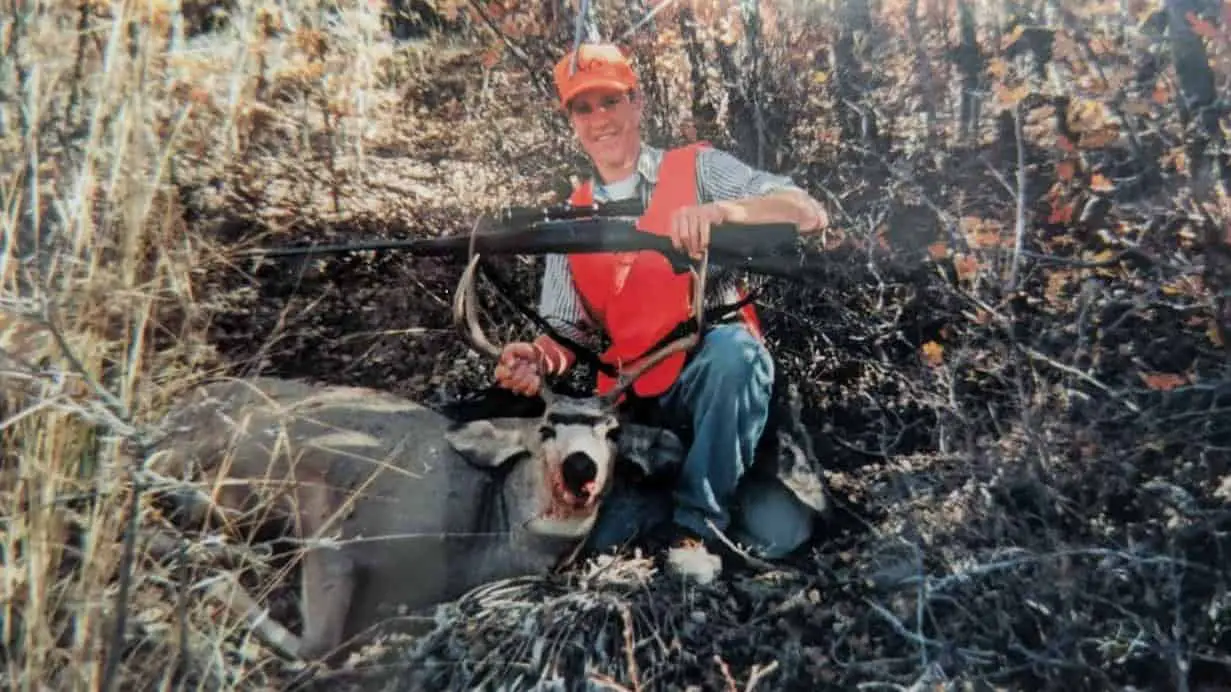Deer are the most commonly hunted species in the United States and the most abundant big game species. Nationwide, deer provide the most accessible hunting opportunity.
However, in the western US, the popularity of mule deer hunts has increased demand for these hunts and when coupled with decreasing permits (from growing urban centers and difficult winters) it is much more difficult for non-resident hunters to find opportunities.
But don’t worry! There are still opportunities out there. I’ll go through four states where you can still get over-the-counter tags to hunt deer out west. For this article, I’ll focus on mule deer, black-tailed deer (a subspecies of mule deer), and Coues deer (a subspecies of white-tailed deer) since they are (mostly) unique to the West. For more information on general deer hunting opportunities throughout the United States, check out this article.

Cost to hunt deer out of state
One hindrance to deer hunting outside of your home state is likely the cost of a tag/permit. This is usually the single largest cost for non-resident hunters. Permit/tag costs are frequently adjusted by state game commissions. Generally, you should plan on spending $350-500 to hunt deer as a non-resident in the western US.
1. Arizona
Most units in Arizona are open for late-season over-the-counter archery hunts. OTC hunts in Arizona are limited to the archery seasons. Rifle hunters must obtain a permit through Arizona’s draw.
Arizona’s archery season gives hunters opportunities to hunt mule deer and/or Coues whitetail throughout almost all of the state (though some units are excluded). Hunt seasons vary some by species and unit but generally run from mid-December through late January.
The season dates overlap with both the mule deer and whitetail rut, so you get the opportunity to hunt deer during some of the most coveted times of the year. These hunts represent an exceptional opportunity.
There are a few things to be aware of if you plan to hunt Arizona’s archery deer seasons.
First, there is a harvest quota for mule deer and whitetails in each zone. Hunters must report their harvest quickly, and check in (online or via phone) to be sure the harvest objective has not been met in the unit they are hunting. When the objective is met, the unit closes.
Second, because the seasons span calendar years, a new hunting license, archery permit, or deer permit may be required to hunt the January seasons rather than the December seasons.
Be sure to review Arizona’s hunting regulations yourself to get all the details.
2. Nebraska
Nebraska is not at the forefront of mule deer hunter’s minds, but it does contain a healthy mule deer population. Mule deer, along with whitetails, occupy the western two-thirds of the state.
While Nebraska’s mule deer population has declined in recent years, the state still offers OTC hunting opportunities. It’s one of the few states where hunters can purchase a rifle deer tag over the counter.
Not all units in Nebraska are open for OTC hunting. There is a Mule Deer Conservation Area (MDCA) where permits are further restricted and tags are obtained through a lottery. About half of Nebraska’s mule deer habitat is open for OTC permit holders.
Though tags are sold over the counter, there is a tag quota, so tags can (and do) sell out. Nebraska lists the date tags sold out the previous year in their hunting regulations so that hunters can plan in advance.
3. Oregon
Oregon has 3 species of deer: mule deer, black-tailed deer, and white-tailed deer. For this article we’ll focus and mule deer and black-tailed deer which are treated as one species in Oregon.
Oregon’s OTC hunting opportunity is pretty straightforward. Permits to hunt mule deer in units in the eastern two-thirds of the state are only available through a lottery draw. Permits for hunting in the western third of the state (coastal areas and mountains) are available over-the-counter. There are OTC permits for multiple rifle and archery seasons in those units.
You’ll want to check Oregon’s hunting regulations for specific details about units, season dates, and regulations.
4. Washington
While not usually recognized as a state with lots of hunting opportunities, Washington (along with Oregon) is one of the better options to get an over-the-counter deer tag. Like Oregon, Washington has OTC hunts for mule deer/black-tailed deer. Most of these hunts occur in the western part of the state, but there are still OTC mule deer options in other areas.
Washington offers over-the-counter opportunities for both archery and modern firearm seasons. There is even a special High Buck Hunt, focused on hunting bucks at higher elevations. If you’re interested in hunting Washington, the deer hunt could be a great opportunity for you.
It’s important to note that Washinton implements point (antler tine) restrictions more frequently than other states. Many units have a 3-point minimum.
Be sure to review Washington’s hunting regulations before purchasing a tag or going on a hunt.
Give it a try!
Now that you have an idea of the deer hunting opportunities available to you, all you have to do is decide which one fits your style and give it a try! Whether you’re a new or experienced deer hunter, the only way you gain experience and get adventure is by doing! So find a way to make a hunt happen and see just how much you’ll learn.
Other hunting opportunities
If these deer hunting opportunities don’t fit what you’re looking for, there are other OTC hunting opportunities in the West. Read about them in these articles.
- Overview of Western OTC Hunts
- Bison
- Black bear
- Elk
- Pronghorn (antelope)
- Deer hunting opportunities in the United States
